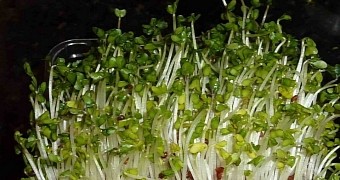Just yesterday, the journal Proceedings of the National Academy of Sciences witnessed the publication of a new paper saying that broccoli sprouts could prove a useful tool when it comes to treating autism.
The study, authored by researchers with the John Hopkins University School of Medicine and the MassGeneral Hospital for Children, explains that a compound extracted from broccoli sprouts appears to ease some of the symptoms associated with this condition.
More precisely, it is said that, as shown by data collected while carrying out a series of experiments with the help of volunteers, the compound in question can put a leash on the behavioral symptoms displayed by autism patients.
Admittedly, the scientists behind this research project are still a long way from prescribing broccoli sprouts as a treatment for autism. However, they say that their findings are encouraging, and that they plan to further investigate the compound's effectiveness in easing autism symptoms.
What the experiments boiled down to
As detailed in the journal Proceedings of the National Academy of Sciences, the scientists worked with a total of 40 male autism patients between the ages of 13 and 27. The symptoms these people displayed ranged from moderate to severe.
Of these patients, some were given a placebo. Others were made to take a compound dubbed sulforaphane on a daily basis. The dose that the autistic boys and young men in this second group took each and every day during the duration of the study was carefully controlled by the scientists.
All throughout this treatment period, the autism patients were all closely monitored. It was discovered that, when compared to the autistic boys and young men who were given placebo, the ones who took sulforaphane all experienced an improvement in their condition.
Specifically, their verbal communication skills got better and they made significant improvements in terms of social interaction. Besides, they experienced a decrease in the repetitive and ritualistic behaviors that they displayed at the beginning of the study.
It's important to note that it's impossible to get the amount of sulforaphane that these patients were administered simply by eating broccoli sprouts or other similar vegetables. Still, the compound could pave the way to the development of new autism drugs.
A possible explanation for the outcome of these experiments
The John Hopkins University School of Medicine scientists, together with their colleagues at the MassGeneral Hospital for Children, suspect that the broccoli sprouts-derived compound alleviates autism symptoms by fighting oxidative stress, inflammation and DNA damage.
The researchers go on to explain that sulforaphane appears to also trigger a so-called heat-shock response, essentially forcing the body to up its efforts to protect cells against damage caused by stress.
“We are far from being able to declare a victory over autism, but this gives us important insights into what might help,” said specialist Andrew Zimmerman. “We believe that this may be preliminary evidence for the first treatment for autism that improves symptoms by apparently correcting some of the underlying cellular problems,” added researcher Paul Talalay.

 14 DAY TRIAL //
14 DAY TRIAL //